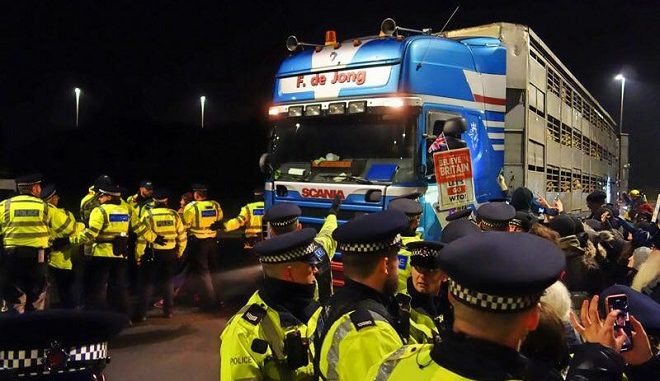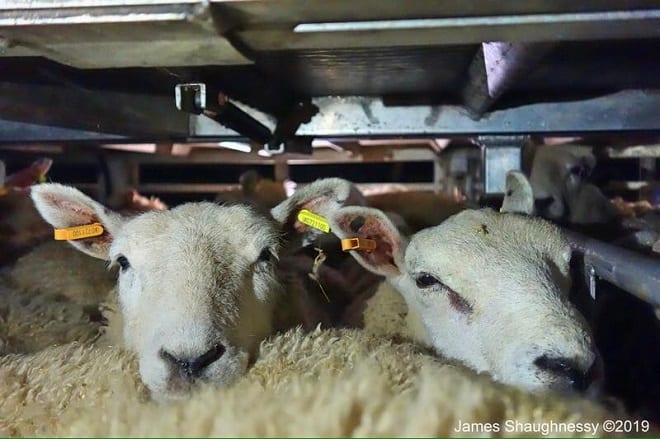
Campaigners protesting against live animal exports claim sheep being transported through Ramsgate to Holland travelled for 20 hours non-stop in the latest shipment.
Under EU rules, lorries carrying sheep must stop for at least an hour after 14 hours, but members of Kent Action Against Live Exports (Kaale) say this was well exceeded on Wednesday night, with the animals in transit for more than 20 hours without stopping.
Protesters gathered in Ramsgate to campaign against live exports as two transporters were loaded onto the Joline ship headed for Stellendam.

Yvonne Birchall from Kaale says by the time the ship reached Holland it would have travelled for 20 hours.
“Sheep rules are 14 hours, minimum one hours rest on lorry with it stationary, then 14 hours and unload for 24 hours before repeating,” she said.
“Far too long we think but even under those rules they have broken them as time at sea is supposed to count as journey time and not rest time.

“Adding in the time travelling to Ramsgate from the north of England, three hours actually being followed and watched by us and the time at the other side before they reach their destination we believe them well out of time.”
Kaale campaigners say this is not the first time EU travel times have been breached.
A spokesman from the Department for Environment, Food and Rural Affairs (Defra) said if any welfare regulations are breached, appropriate action is taken.
“Animals deserve respect and care at all stages of their lives, which is why we have consistently said that we will control the export of live farm animals for slaughter once we leave the European Union,” he said.

